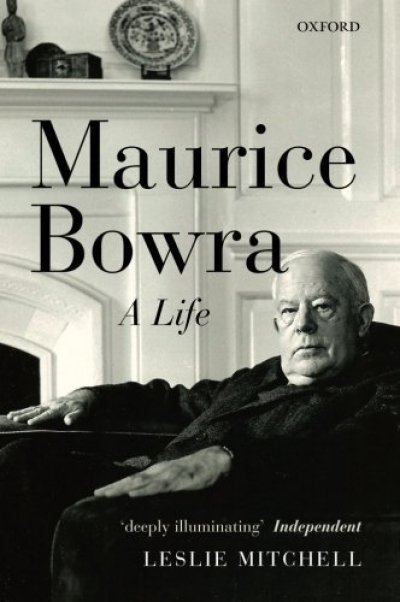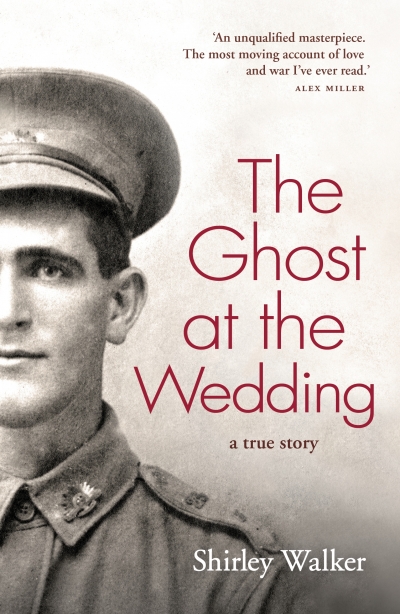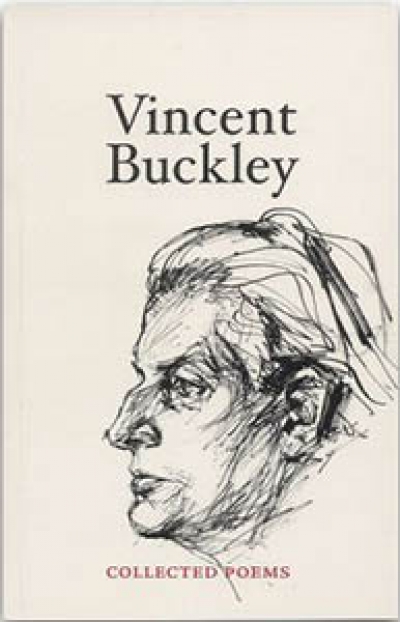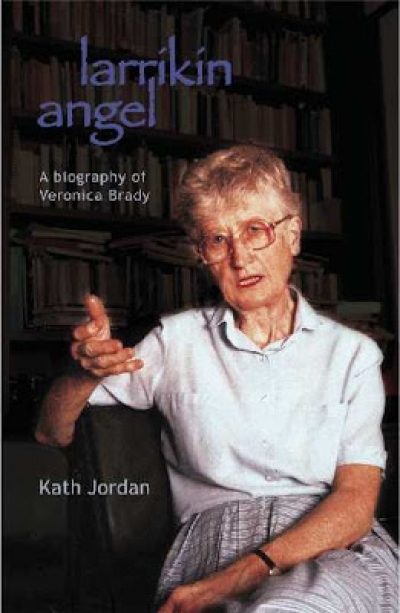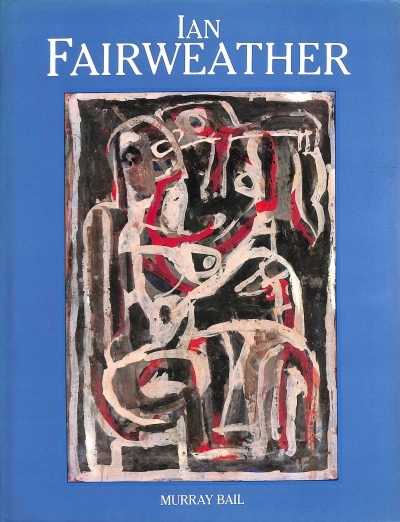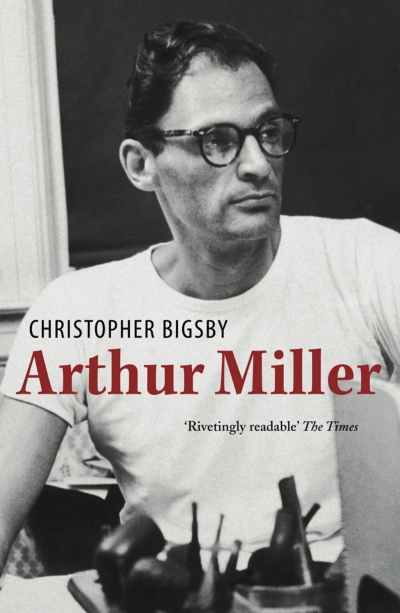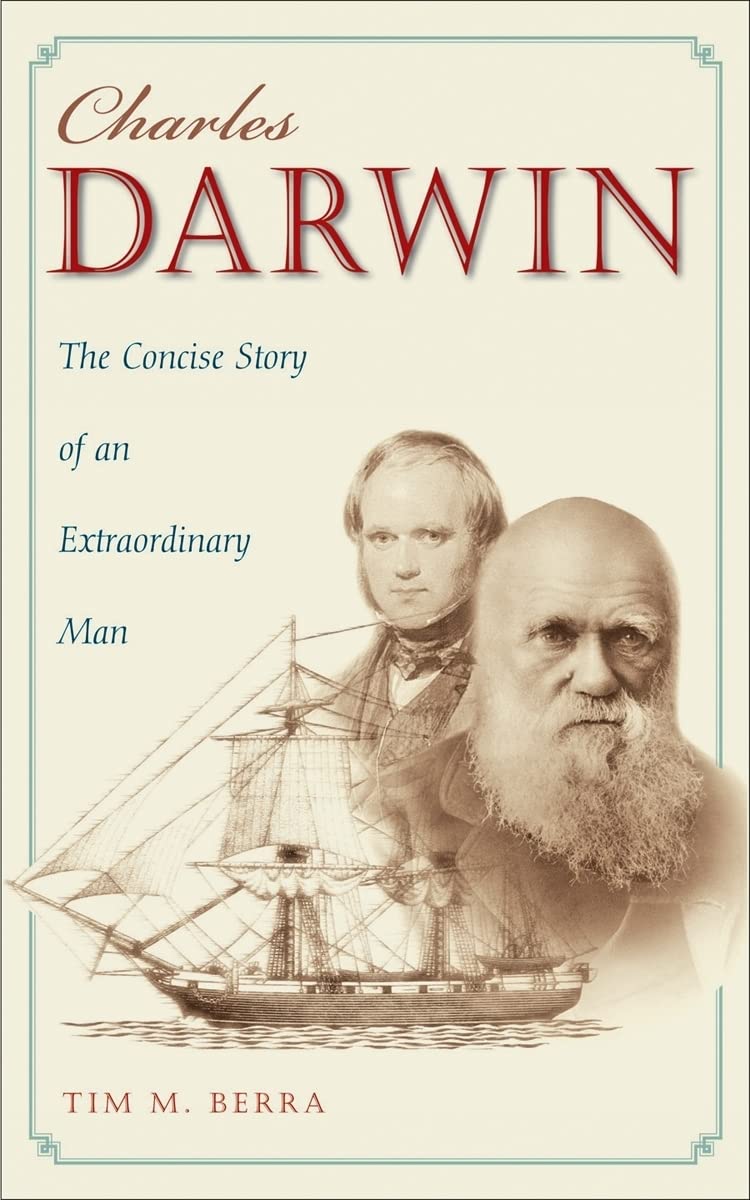Biography
Sir Maurice Bowra, renowned as the most lively and learned don in Britain, if not in all Europe, reigned supreme as Warden of Wadham College Oxford for more than three decades until his retirement in 1970. This long-expected biography, diligently researched for many years by the late Michael Davie, London-based author, journalist, and former editor of the Melbourne Age, has now been expertly completed by Oxford historian Leslie Mitchell, who writes with the ease and authority of a biographer thoroughly acquainted with his subject and the College over which he long presided: though not, perhaps, with the sharply quizzical eye that Davie, working outside that golden circle, might have trained on both.
... (read more)The Ghost at the Wedding: A true story by Shirley Walker
Some stories deserve to be told more than once. Retold, they cannot be the same. Even when the teller is the same person, the shift in time and experience will make the story new. In The Ghost at the Wedding, Shirley Walker returns to the material of her autobiography, Roundabout at Bangalow (2001), in order to focus more closely on the saddest and most powerful memories therein: those of the young men of her family who served in two world wars.
... (read more)Vincent Buckley edited by Chris Wallace-Crabbe & Journey Without Arrival by John McLaren
Amnesia about writers of the past, even the not too distant past, is one of the besetting ills of our culture. How many readers of poetry under forty have more than a nodding acquaintance with the work of A.D. Hope, Francis Webb, Douglas Stewart or Vincent Buckley? All are fine poets, remembered now (if at all) through a handful of anthology pieces, partly because their published volumes usually disappear from print within a few years. Poets are particularly susceptible to the culture of forgetting, but the malaise extends to novelists and others who have made major contributions to our cultural, political and social life.
... (read more)The question of the relationship of the biographer to their subject is a fascinating one. Kath Jordan is frank about her long and intimate friendship with Veronica Brady as she recounts the way this book came into being. In a preface, she remembers celebrating with a friend the High Court’s rejection of Western Australia’s challenge to its Mabo native title decision, in March 1995. Thinking of Brady’s active involvement in Aboriginal rights issues, the two decided that they would write her biography. Brady gave her consent to the idea – although there is no sense that she was closely involved with the project – and what became the unexpectedly long gestation of Larrikin Angel was eventually begun, with only one author.
... (read more)‘A large part of the beauty of a picture,’ Matisse famously decreed, ‘arises from the struggle which an artist wages with his limited medium.’ Struggle is the dominant motif in Murray Bail’s study of Scottish-born painter Ian Fairweather, first essayed in 1981, now refashioned, updated, and handsomely repackaged.
... (read more)If you felt there was a touch of hubris in Baz Luhrmann’s naming his movie Australia, you may think the opening sentence of Christopher Bigsby’s biography of Arthur Miller even more startling in its pretensions: ‘This is the story of a writer, but it is also the story of America.’ Not, observe, ‘a story’, but ‘the story’. This grandiose proposition helps to account for nearly 700 dense, uncompromising pages – and they only take in the first half of Miller’s long life (1915–2005).
... (read more)When my husband died a while back, I was left with my memories and a house full of books. Harold was so ill, and for so long, that what I felt in those first few days after his death was a dulled feeling, ‘It’s over’. Not relief, certainly not joy, not even sorrow, but a blank sense of inevitability: ‘All over’: the end to the terrible struggle of the past few years, the harder struggle of the last few months, and the merciful oblivion of the last few days.
My husband had so many books, so lovingly collected. On various scraps of paper, inscribed at different times and places, he left contradictory instructions about what was to happen to his books when he died. Until I work out what to do, I have become caretaker of the books.
... (read more)One morning in late June 2008 I was seated at the breakfast table in Oriel College, Oxford, with a small group of delegates at a conference devoted to Frederick Austerlitz, when a man approached, with a bulging briefcase slung from his shoulder, and asked if he might sit down. It emerged that he had walked from Oxford Railway Station (no mean trek) in order to get to the college in time for the conference’s first session, which he was hoping to attend. Directed to one of the conference organisers, he repeated his tale, was informed he’d be welcome, and was then asked his name. ‘Carmichael,’ he said casually. ‘Hoagy Carmichael ... Junior.’
... (read more)Leo ‘Rumpole’ McKern: The accidental actor by George Whaley
To become associated, even identified, with a role or a certain kind of role may ward off the financial uncertainties of an actor’s career, but it undoubtedly also brings its limitations. Remember how ineffably lady-like Greer Garson appeared in her MGM heyday: I recall watching her narrow her eyes in Mrs Miniver and thinking that she could play Lady Macbeth if someone gave her the chance. No one ever did. Leo McKern wasn’t quite so effectively imprisoned by his ‘Rumpole’ persona, but it is at least on the cards that he will be remembered with such tenacity for nothing else.
... (read more)Charles Darwin by Tim M. Berra & Darwin’s Armada by lain McCalman
‘Read monkeys for pre-existence’ wrote the twenty-nine-year-old Darwin in one of his notebooks, pondering Plato’s assertion that our ‘imaginary ideas’ derive from the pre-existence of the soul. Two years earlier, when HMS Beagle had returned from its circumnavigation of the world, Darwin was still a creationist, albeit one who had entertained doubts. Keen to capitalise on his wide-ranging collection, and to make a name for himself, he arranged for various experts to examine the specimens. Fairly quickly during the ensuing discussions, Darwin realised that his doubts concerning the stability of species were ready to burgeon into a new and disturbingly materialist worldview.
... (read more)

